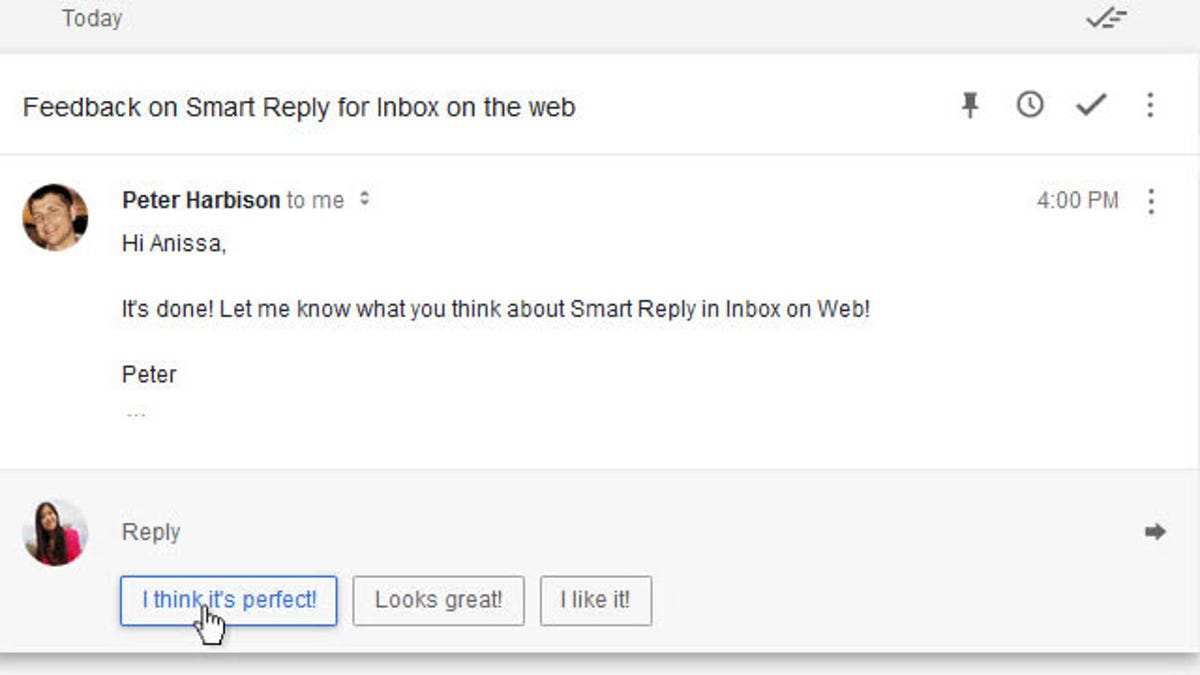Now Google will help you send canned replies to Web-based email too
The Inbox app's "smart reply" feature, which offers three ready-made responses to email through the use of deep learning technology, is now available in the Web version of Google's Gmail alternative.

The Smart Reply feature in Google's Inbox tries to help you more quickly respond to your emails.
Google is already reading your email, so why not let it help reply too?
Users of Google's Inbox email Web service can now save time and effort responding to messages, courtesy of a feature called Smart Reply.
Already available for Google's Inbox mobile app, Smart Reply scans your email and then suggests up to three automated responses based on the messages you receive. If one of those responses hits the mark, simply select and send it. You can also modify the replies before sending.
Inbox is an alternative to Google's Gmail that offers a cleaner interface and uses algorithms to sort and categorize your messages so you can more easily decide which ones to look at and which ones you can ignore.
Smart Reply may seem simple on the surface. But to make it work, Google employs a variation of artificial intelligence known as deep learning. Google has been using deep learning to give services like email more of a human touch by teaching them to anticipate what you want to do so you don't have to do it yourself.
Smart Reply takes Google's reading of your email to a new level. The company already checks message content to cut spam and previously did so to to serve up advertisements. Now, though, the electronic scrutiny is getting deeper through a machine-learning system known as deep neural networks.
Over the past week, Google proved its prowess at artificial intelligence in a round of the ancient game Go. On Tuesday, Google's AlphaGo AI program won the fifth and final round game of Go in a bout with Lee Sedol, one of the greatest Go players in the world. AlphaGo took four out of the five games in a contest that marked a huge jump forward for computer smarts. Go is considered a more challenging game than chess, especially for a machine, as its vast number of black and white stones can be set up a variety of ways, while the potential moves and outcomes are seemingly endless.
CNET's Stephen Shankland contributed to this report.

